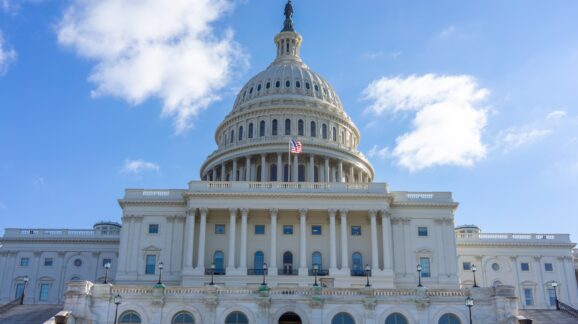House Republicans Helpfully Tie Government Reforms to Debit Limit Deal

Photo Credit: Getty
House Republican leadership yesterday released the text of their debt limit deal which trades a suspension or increase in the debt limit for a number of measures to limit government spending and reduce the size of the regulatory state.
The proposal repeals “Inflation Reduction Act” energy subsidies, rescinds funding for 87,000 new IRS agents, and blocks billions of dollars in student loan forgiveness. Further, the proposal also includes language from the Regulations from the Executive In Need of Scrutiny (REINS) Act that would require congressional authorization for major agency regulations that have a big impact on businesses and the economy.
CEI policy experts praised the proposal.
Myron Ebell, Director, Center for Energy and Environment:
“The House Republicans’ debt ceiling package includes the most welcome repeal of the farrago of green energy subsidies included in the so-called Inflation Reduction Act. Repeal of these massive handouts to every special interest in the climate industrial complex will save taxpayers hundreds of billions and perhaps trillions of dollars while at the same time reducing energy costs and increasing electric reliability. Those who write off the energy section of the House Republicans’ debt ceiling plan as dead on arrival in the Senate should remember that every Senate Republican voted against the IRA, as well as every House Republican, and that Democratic Senator Manchin of West Virginia has been complaining about major parts of his bill ever since it was passed last summer.”
Daren Bakst, Deputy Director, Center for Energy and Environment and Senior Fellow:
“It’s great to see legislators fighting back against the left’s war on conventional energy and radical effort to limit Americans from buying gas-powered vehicles. The debt ceiling package gets rid of market-distorting handouts in the Inflation Reduction Act and includes regulatory reforms to help ensure Americans have reliable and affordable energy.
“Allowing the Inflation Reduction Act to become the new normal, with a centrally-planned energy sector and restrictions on personal freedom, is unacceptable. For recognizing this, I commend the House Republican leadership.”
Wayne Crews, Fred L. Smith Fellow in Regulatory Studies:
“The new Limit, Save, Grow Act of 2023 proposes to increase the debt limit, yet again, by $1.5 trillion in exchange for rolling back the likes of unspent American Rescue Plan and Inflation Reduction Act funds; nullifying student loan debt forgiveness; repealing or modifying an assortment of distortionary and counterproductive green tax credits; cancelling the new army of 87,000 IRS employees; and finally, for good measure, requiring Congress to henceforth approve major agency regulations.
“Those are all good policies, but there are major, underlying concerns that dampen their significance or potential. Congress needs to pursue a far more aggressive federal government downsizing program capable of combating the progressives’ far more aggressive drive to expand it. The debt ceiling may be one of the last standing federal institutions capable restoring constitutional normalcy by forcing decreases, not agreeing to expansions in exchange for cuts that are minor in the scheme of things or that in reality never materialize.”
Iain Murray, CEI Senior Fellow:
“It is good to see Congress exercising some self-discipline over spending as part of the debt limit extension after the excesses of the pandemic era. The reason we have a debt limit is that it is one of the few constraints on congressional excess, in particular the abuse of crises. The Senate should approve this package quickly to avoid further uncertainty unsettling the markets and the daily lives of ordinary Americans.”
Ryan Young, CEI Senior Economist:
“Regulatory reforms such as the Regulations from the Executive In Need of Scrutiny (REINS) Act are an essential part of any debt ceiling deal. Otherwise, if the federal government has to spend less than it wants to, it might issue more regulations instead. One option shows up on the budget, and the other doesn’t. Without checks like REINS, Congress and agencies would have a massive incentive problem.
“REINS itself is modest. It would require Congress to vote on major new agency regulations, in order to make sure they stay true to congressional legislation. This would add three or four votes per month to Congress’ calendar, and a great deal more to restoring a healthy separation of powers.”
“There are many more regulatory reforms worth pursuing, but including the REINS Act in the debt ceiling deal would be an excellent first step.”
Related analysis: “REINing in Regulatory Overreach.”